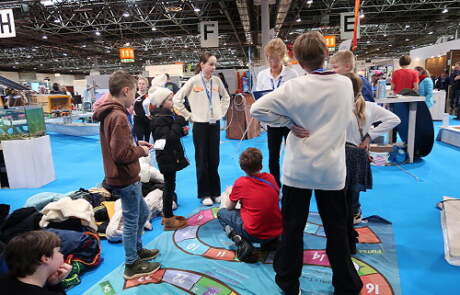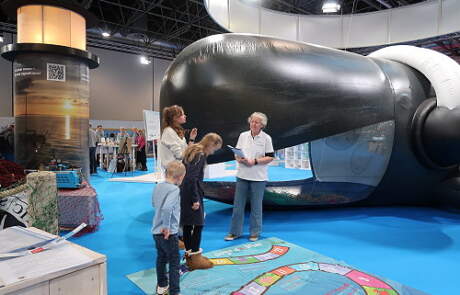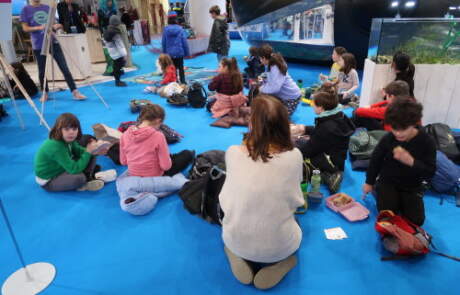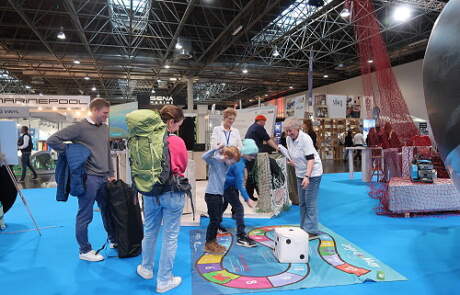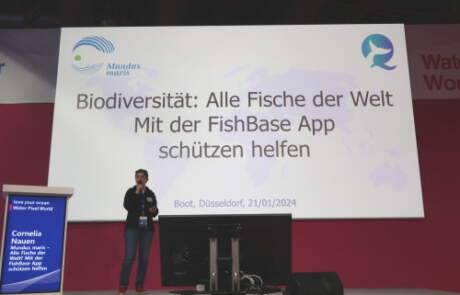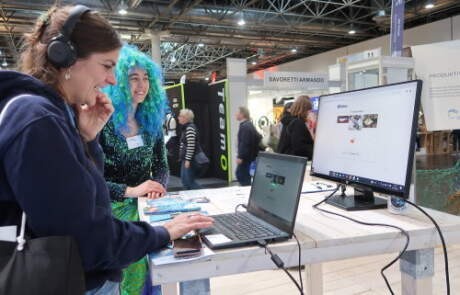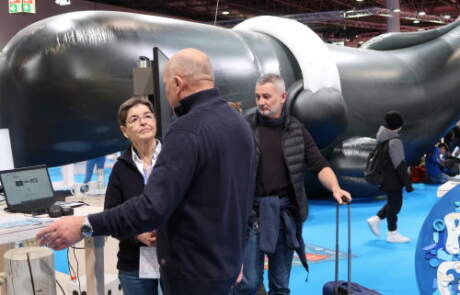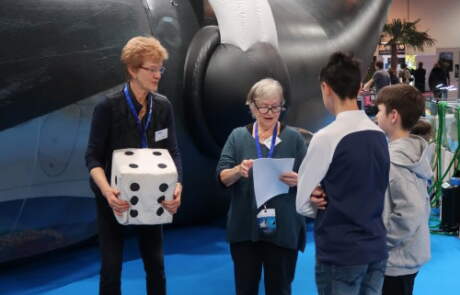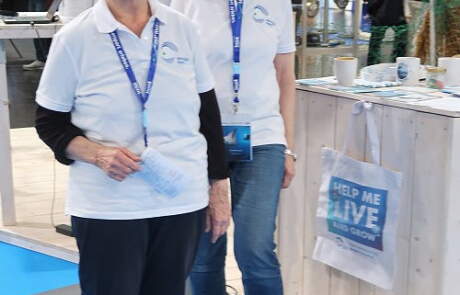Beating earlier records, the ‚love your ocean‘ platform to promote the seven principles of the UN Ocean Decade was present with more than 60 partners at the international fair for water sports, Boot 2024 in Düsseldorf, Germany. From 20 to 28 January, Mundus maris teams offered games, discussions, networking. We also supported the FishBase sound quiz of our friends at Quantitative Aquatics.
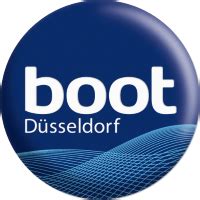
We spoke to as many of the visitors streaming through to Hall 11 as we could, and promoted joining the action for ocean literacy, ocean protection and solidarity with low impact small-scale fishers through the Small-Scale Fisheries Academy. The Ocean Game in front of the eye catching whale with noise protection over its head and aggressed by lost fishing nets in its stomach was a particular attraction for the kids who sometimes seemed to be more knowledgeable than some adults. The rules were simple, the Mundus maris game master would ask a question and in most cases offer multiple choices for the answer. Upon answering correctly, the player would throw the dice and advance on the trail accordingly. There was a wide variety of questions for different age groups and levels of knowledge. Families would see the kids excited to be able to throw the dice with parents encouraging their offspring or even getting into the action themselves. During weekdays, entire school classes would visit the ‚love your ocean‘ platform and spend an hour or so in smaller groups of 8 to 10 pupils going from one island on the platform to the next, some also playing the Ocean Game. Getting through to the finishing line invariably led to some hurrays, sweet rewards and a Mundus maris / Q-quatics book mark with our mascots Samba and Kumba and the slogan: I am still a baby, help me live and grow!. The original design of the Ocean Game was drawn up by scientists of the Portuguese Marine Research Institute in Lisbon. We use a range of questions to match the knowledge level of different age groups and also encouraging the little ones to tell stories about what they remember from seaside visits or documentaries. Even four-year-olds knew that the amazingly agile and intelligent octopuses have eight arms. Several teachers have asked about the game as a means to lighten up their pedagogical programmes. Naturally, we are happy to provide the materials and questions.
One of our eye-catching mermaids was present when Boot Director Petros Michelidakis (left on the picture) came through, Frank Schweikert of the coordinating German Marine Foundation in tow. He was pleased with the good response of the public to the platform and happily accepted a Mundus maris bag with the slogan to protect the juveniles and thus draws attention to the urgent need to stop mass species extinction in the ocean. In the same vein, we distributed close to a thousand visiting cards of the FishBase Guide app for android, which addresses the same concern. The app draws key sustainability information from the global database on all 35,000+ fish species in marine and freshwater known so far. It packages a selection from this vast treasure trove of scientifically validated data for easy use.
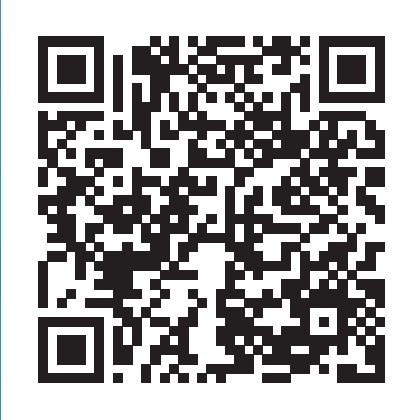
The app can be searched with common fish names in any language. Besides the picture of the fish of interest it shows the minimum size at which the species reproduces and what would be the size at which the catches would be sustainably maximised, the so-called optimum size. It is quite clear that when anglers land cod (Gadus morhua) of 35 cm at the legal minimum size most fish are still babies and weigh around 300 g or less. A fish of reproductive size, e.g. at a length of between 55 and 70 cm, weighs in the order of 2.5 kg. A fish of the optimum sizes weighs about 4.5 kg. The almost unanimous response was surprise about why people might wish to catch babies and a strong endorsement of the app. Downloads of the app from the Google Play store went up right away. What else did we have in store for the many visitors? Yes, of course, the FishBase Sound Quiz of Q-quatics, the scientific non-profit based in the Philippines, which hosts two global biodiversity information systems, FishBase and SeaLifeBase. Q-quatics is unsurpassed in supporting the 700,000 monthly visits to the FishBase website providing anything you wanted to know about fish, for work, study or sheer pleasure of knowing more about these animals predating humans by millions of years.
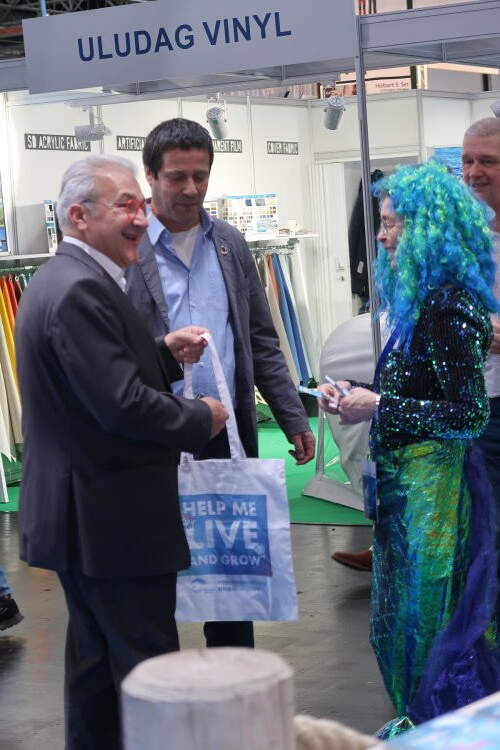
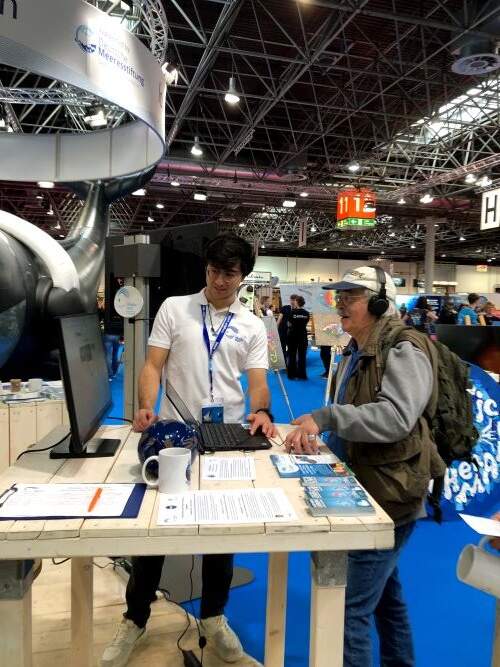
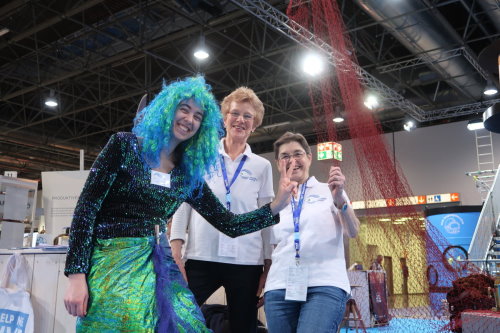
The divers did naturally know that fish can make sounds, but many others, including sail boaters did not and were often surprised about the types of sound grunts, cod, herring and other fish species can produce. There is still a lot to be discovered because it is often far from clear what purpose the sounds may serve. While the vast majority of the public visits the Boot fair seeking novelties for the pleasures of the water sports, many visitors were interested in hearing how they could be part of the solution to what they perceived as an environmental crisis. This is why quite a few indicated what they were already doing and that they strongly opposed the plastic diluge and overfishing. The countless conversations with visitors were a great source of joy, inspiration and mutual learning. Top of the list were a few which could well lead to new collaborations, be it by joining forces for ocean literacy – primarily with schools – be it to enhance the usefulness of SeaLifeBase and FishBase to an ever growing range of users and to drive our programme for strengthening capacities of small-scale fishers, particularly women. Not to forget that being there – also with our great neighbours, the Baltic Heritage Rescue Divers and the Plastic Fisherman crowd – was just fun. Last, but not least, Cornelia Nauen of Mundus maris presented three topics on different theme days on the Water Pixel World to mark other types of contribution to the mottos of the UN Ocean Decade. The talk ‚Alle Fische der Welt – Mit der FishBase App schützen helfen‚ (All fish species of the world – helping to protect with the FishBase app) addressed biodiversity.
‚Die Ozeanerwärmung lässt die Fische nach Luft schnappen‚ (Gasping fish as a result of ocean warming) in turn addressed the role of gill size limitation on the growth and swimming capacity of fish exasperated by rising temperatures in the ocean on the day dedicated to climate issues. The final day of the fair was dedicated to ‚Future Ocean‘, so we projected what it could and should mean to get healthy food from a healthy ocean:‘Gesunde Nahrung aus einem gesunden Ozean‚.
Our complete programme is here. We owe a word of thanks to Claudia Mense, who organised and coordinated the participation of Mundus maris and Q-quatics flawlessly. Thumbs up as well to the dynamic team of the German Marine Foundation led by Frank Schweikert and, of course, our host, the management of Boot.
All pictures by Mundus maris asbl.

